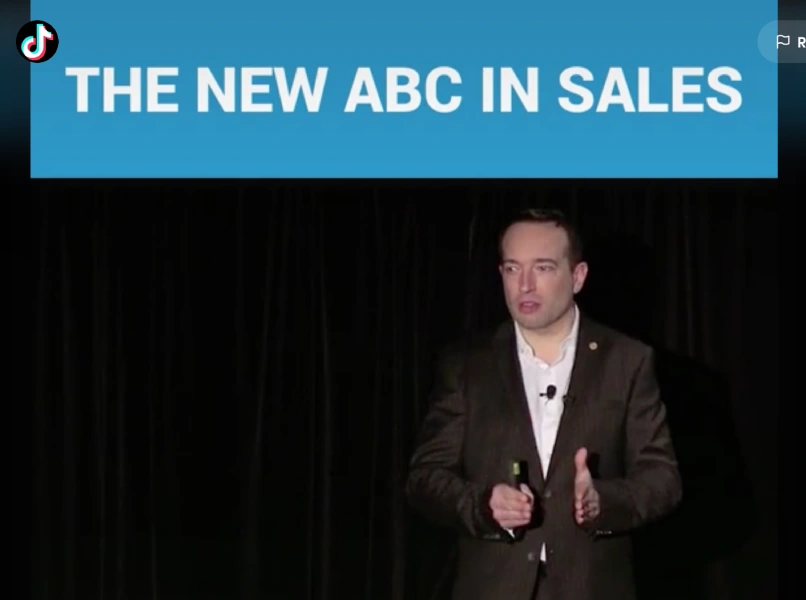Channel Sales Podcast: Unveiling the Secrets to Effective IT and Channel Sales Training: A Conversation with Julian Lee
Podcast: Play in new window | Download | Embed
Subscribe: RSS
I’m excited to share insights from my recent interview with Julian Lee, Publisher of echannelnews. We delved into IT sales training and Channel Sales Training, discussing the strategies that help sales development programs that help move the sales needle in the right direction. Here’s a comprehensive summary of our conversation, packed with actionable insights and top takeaways – please note that this post is based upon the podcast transcript and was written with the assistance of AI and humans!
I am going to be delivering a new keynote on AI for Business Growth at the next ChannelNext West Conference in Whistler, British Columbia on October 21st and 22nd 2024.
Here’s the sales podcast summary:
The Importance of Coaching in Tech Sales
One of the key topics we touched upon was the critical role of coaching in sales. Coaching is not just about auditing or ensuring compliance with KPIs; it’s about sitting next to your sales reps, listening to their conversations, and guiding them on how to seize opportunities they might miss. This hands-on, side-by-side approach can transform average performers into sales stars. Without this, even the best sales training programs can fall short.
Teaching Traditional and Modern Sales Techniques
Julian and I discussed the evolution of sales techniques. While traditional methods like objection handling and closing strategies are still relevant, today’s sales environment demands more. Authenticity, empathy, and uncovering the truth behind a customer’s objections are crucial. Selling cybersecurity exemplifies this; if you’re not truthful with your customers, you’re not only risking the deal but also their trust and security.
Hybrid Sales Training Approaches
In our discussion, we highlighted the effectiveness of hybrid training models. These combine self-directed learning with in-person coaching. Online sales courses with quizzes and implementation documents, followed by in-person sessions, ensure better retention and application of knowledge. This method is especially effective in IT sales training, where continuous learning and adaptation are vital.
The Role of Technology and AI in Sales
Technology plays a pivotal role in modern sales training. Tools that automate processes, prioritize leads, and provide customer insights allow salespeople to focus on what they do best – selling. However, while technology equips us with powerful tools, the differentiator remains our people skills. AI and automation are now ambient, but the human touch in sales is irreplaceable.
Embracing Empathy and Authenticity in Sales
Empathy and authenticity are not just buzzwords; they’re essential for building lasting relationships with clients. Teaching these values starts within the company. Sales leaders must create an empathetic environment that reflects in their team’s interactions with clients. Role-playing exercises and holding space without judgment are effective ways to cultivate these skills.
Overcoming Common Sales Objections
A common objection to sales training is time. Companies often struggle to take their sales teams offline for training. Our solution is a blend of asynchronous learning and in-person coaching, minimizing downtime while maximizing impact. Assessing the current sales process and highlighting the cost of missed opportunities can also help justify the investment in training.
Building an MSP Sales Playbook
A well-structured sales playbook is a cornerstone of successful sales teams. It should include ideal client personas, effective approaches, core objections and responses, and critical questions for client interactions. This playbook not only guides new hires but also ensures consistency and efficiency across the team.
Top 10 Takeaways from the Interview
- Coaching Over Auditing: True coaching involves hands-on guidance, not just monitoring KPIs.
- Hybrid Training Models: Combining self-directed learning with in-person coaching yields the best results.
- Importance of Empathy: Cultivating empathy within the team translates to better client relationships.
- Leveraging Technology: Use technology to streamline processes and focus on human interactions.
- Authenticity Matters: Being truthful and transparent builds trust and long-term success.
- Continuous Learning: Regular training and updates keep sales teams sharp and adaptable.
- Sales Playbook: A detailed playbook provides a roadmap for consistent and effective sales practices.
- Handling Objections: Address the time objection by integrating asynchronous learning and justifying the ROI.
- People Skills as Differentiators: In an AI-driven world, human interaction is the key differentiator.
- Management Buy-In: Ensure that sales leaders are committed to the training and development of their teams.
Check out Julian’s eChannelNews Podcast here
Watch the video from ChannelNext West:
Effective IT and Channel Sales Training are about more than just imparting knowledge. It’s about fostering a culture of continuous learning, empathy, and authenticity. By leveraging technology and hybrid training models, we can equip our sales teams to excel.
If you’re looking for a sales training provider or keynote sales speaker for your next conference – contact us!












